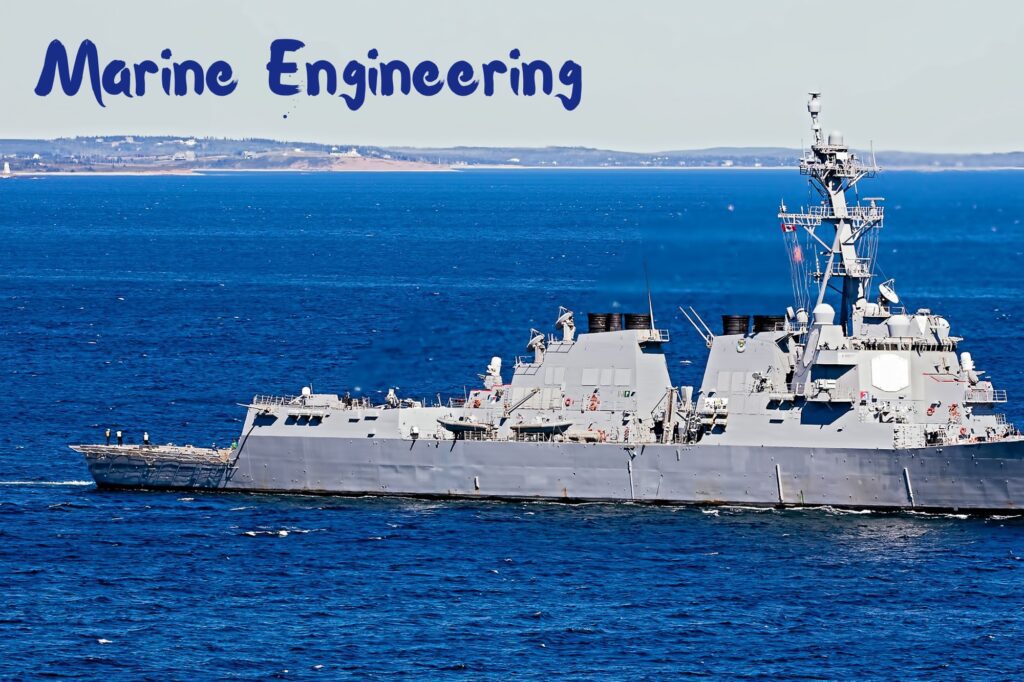Marine engineering is responsible for keeping vessels and other marine vessels operating safely and efficiently. Marine engineers design and build ships, submarines, and other vessels and maintain and repair existing vessels. It also involves identifying energy sources to power ships and other vessels in the modern age.
Skills required
Marine engineering requires strong technical skills and physics, engineering, and mathematics knowledge. Marine engineers must also understand the marine environment well, including the different types of vessels, the effects of weather and sea conditions, and the regulations governing the industry. In addition to technical skills, marine engineers must also possess strong communication and problem-solving skills.
Advantages of Marine Engineering Careers
Marine engineering comes with numerous benefits and opportunities. Marine engineering offers a wide range of professional and personal advantages, from working on the latest ships to exploring new and exciting destinations.
1. International Travel:
Marine engineering jobs can take you around the world. As a marine engineer, you get to experience different climates and environments. You could find yourself working on a cruise ship in the Caribbean or a cargo ship in the Mediterranean Sea.
2. Job Security:
Marine engineers are highly valued professionals. This means your job is likely to remain secure for a long time. The demand for experienced marine engineers is increasing, so you can expect to find steady work with competitive wages.
3. Job Satisfaction:
Marine engineering is a challenging and stimulating career path. Whether you’re working on a new fleet of vessels or helping to design and build a new vessel, the satisfaction of a successful job is immeasurable.
4. Professional Development:
Marine engineers are constantly learning and developing their skills. With new technologies and industry advancements, there’s always something new to learn and explore.
Qualifications Needed to Become a Marine Engineer
This role requires extensive technical expertise and knowledge, so the qualifications needed to become a Marine Engineer are extensive. The first step to becoming a Marine Engineer is to obtain a Bachelor’s degree in Marine Engineering or a related field. This degree will provide the knowledge and skills necessary to work in the field. Also, obtain a license as a Marine Engineer, which typically requires a combination of theory, practical experience, and a written examination.
In addition to a degree and license, most employers will require Marine Engineers to have several other qualifications, including knowledge of engineering principles, blueprints and diagrams, and experience with the operation and maintenance of marine vessels. Marine Engineers who wish to advance in their career may pursue a Master’s degree in Marine Engineering or a related field. This advanced degree will give them access to higher-level positions and a more lucrative salary.
Institutes for Marine Engineering in India
- The Institute of Marine Engineers
- Indian Maritime University
- Tolani Maritime Institute
- Coimbatore Marine College
Types of Marine Engineering Roles
The field of marine engineering is vast and varied, encompassing a wide range of roles, responsibilities, and specializations. In this section, we’ll explore the different types of marine engineering roles so that you can determine the best fit for your career path.
1. Propulsion Engineering
It is the study of the forces and mechanisms that power ships and other marine vessels. Propulsion engineers are responsible for designing, maintaining, and operating the propulsion systems of ships and boats. These systems include engines, turbines, other power sources, and all related components, such as fuel systems, lubrication systems, and exhaust systems.
2. Navigation Engineering
It involves studying how ships and other vessels move through the water. Navigation engineers are responsible for designing, maintaining, and operating navigation systems. These systems include navigation instruments, such as compasses, gyroscopes, radar, and navigation software, such as autopilots and navigational aids.
3. Power Plant Engineering
It is the study of the systems and components responsible for generating and providing power to ships and other marine vessels. Power plant engineers are responsible for designing, maintaining, and operating the power plants of ships and boats. These systems include generators, turbines, other power sources, and all related components, such as fuel systems, lubrication systems, and exhaust systems.
4. Maintenance Engineering
It studies how to maintain, inspect, and repair ship and marine vessel systems. Maintenance engineers are responsible for designing, maintaining, and operating the systems of ships and boats. These systems include propulsion systems, navigation systems, power plants, and all related components, such as fuel systems, lubrication systems, and exhaust systems.
Safety Engineering
It ensures the safe operation of ships and other marine vessels and safety systems. These include emergency systems, such as firefighting, lifesaving, and flooding control, and all related components, such as alarms, lighting, and ventilation.
Potential Salary in Marine Engineering
The potential salary for a Marine Engineer highly depends on the job type they pursue. For example, a Marine Engineer in the merchant marine industry may have a starting salary of around $50,000 per year. In comparison, a Marine Engineer in the oil and gas industry can earn a starting salary of around $100,000 annually. In addition to the type of job, salary potential also depends on the individual’s experience level.
Marine Engineers must stay updated with trends to remain competitive. This can increase salary potential, as employers pay more to individuals with the most up-to-date knowledge and skills. Also, Marine Engineers working in coastal states may get higher salaries because of the cost of living in those areas. In summary, the potential salary for a Marine Engineer is highly dependent on the type of job, the individual’s level of experience, the latest technologies and trends, and the location of the job.
Networking Opportunities in Marine Engineering
In today’s competitive job market, attending industry events and conferences is the best way to network. Many of these events are organized by professional organizations, like the Society of Naval Architects and Marine Engineers or the International Maritime Organization. These events provide a great opportunity to meet and connect with people in the field, learn about new developments in the industry, and get advice and tips from more experienced professionals.
Another way is to join professional organizations and online communities. These organizations and forums often host virtual meetings and online discussion boards, allowing members to interact and connect. Many of these organizations also offer members access to exclusive resources and job postings.



